- Home
- Tim Lebbon
The Nature of Balance
The Nature of Balance Read online
The Nature of Balance
Tim Lebbon
© 2015 Tim Lebbon
Tim Lebbon has asserted his rights under the Copyright, Design and Patents Act, 1988, to be identified as the author of this work.
First published in 2015 by Tim Lebbon.
This edition published in 2016 by Venture Press, an imprint of Endeavour Press Ltd.
Table of Contents
1. The Little Dead Girl
2. The Distance
3. Dead-weight
4. Chewing Grass
5. Blood Red
6. Death by Design
7. The Absent They
8. What’s in a name?
9. Arguing with Instinct
10. Wake Up Falling
11. Agitated Ghosts
12. Laying the Demons to Rest
13. The Taste of Memory
14. A Chorus of Cries
15. Dead Rainbows
16. Open Wounds
17. Rebellious Ghosts
18. Room Full of Dead
19. The Nature of Things
20. Toys
21. Into the Wilds
22. Forgotten Ideas and Dead Roots
23. The Ruin
24. Damaged Flesh
25. The Heart of the Beast
26. Crying Blood
27. Good Dog
28. The Lidless
29. Mother’s Intuition
30. The Next Catastrophe
31. The Marked Time
32. Lost Treasures
33. Taking Account
34. To Sire the Future
35. The Open Door
1. The Little Dead Girl
The dead girl holds her mother’s hand.
She does not seem dead. In fact, she is the very image of a pretty, lively child, all sun-tanned limbs, glinting eyes and knees grazed by adventure. Even her hair appears drunk on her life force, swaying where there is no breeze and bouncing with each step.
But the girl is dead, existing only in this strange place, unmissed and forgotten elsewhere. And although her mother clasps her hand tightly, and their palms are fused by sweat, there is no real connection.
The road is cut into a mountainside. To their right, trees cling tenaciously to the edge of an almost vertical drop, roots shrivelling where earth has fallen away into the valley below. They are evergreens, but mostly brown. The road is dusty from lack of use, any line markings long since scoured into veinous patterns by the abrasive wind. Their footsteps thump into silence.
The dead girl feels safe. There is nothing here to harm her. The road behind them is empty, while ahead there is only a virgin surface ready for them to disturb.
But there is something wrong with the trees. Those at the road-side are slanted slightly towards the valley, evidence of the land’s insidious downward movement, but they are also twisted into other, less logical shapes. They seem to turn away from the sun, seeking darkness rather than light to provide their sustenance.
The dead girl knows that this is very wrong.
Her mother increases their pace and the girl looks up, but the sun is glaring down into her eyes and she can see only a haze where her mother’s face should be. She glances down and sees that they are no longer leaving tracks in the dust. With startling clarity, the little dead girl realises that all the trees are now leaning in towards her. Following her along the road, like the eyes of a sickly portrait.
Something drifts above the path. It is a huge bird, wingspan that of a heron, but its beak and feathers scream carrion. It settles into a nest made of stained white bones, jerking its head as it regurgitates its own insides to feed its slovenly brood. As they pass by the great bird turns its head and stares at her. Then one of the fledglings pecks out its mother’s glazed eye, and it stares no more.
Mummy, the dead girl wants to say, but she cannot speak. The heat has melted her voice. She tries to scream, but there is no pressure in her throat, no movement in her chest. She is afraid and recognises that she always has been. There has been something constantly there, lurking just beyond her perception, like a vulture awaiting her demise.
The little dead girl finds that she is no longer holding her mother’s hand.
The air changes. It becomes heavier, cooler. The girl shivers, then she knows that there is someone standing behind her. To her left and right, bushes and trees fold in on themselves like polystyrene splashed with flame. The road begins to undulate, but the girl feels no movement. Whatever unnatural shape the world is assuming, she is transforming with it.
There is a sudden pressure on her arms. Strong hands grasp and lift her from the dry earth. She tries another scream but it goes inward, shaking her bones, rattling her insides.
For the first time the girl is aware of the huge drop to her right. The valley is wide and flat, stitched into uneven squares by hopeless farms scattered across its floor. Walls and hedges divide the fields, trees huddle here and there in small groups, as if plotting escape from the confines of the man-made landscape. The farmhouses are white, reflecting the sun up towards the mountain road. From this height they all seem very small.
The girl is lifted higher, and then thrown.
Air rushes past her ears, through her hair, rippling beneath her clothing. She spins and sees the mountain behind her, the road empty in both directions. From here, the brown trees look almost as nature intended.
As she rises high and then plummets towards the fields she realises that the crops are unknown to her, the trees twisted and cancerous, hedgerows bulging like blocked veins. With seconds to go before she strikes the ground, she knows that the land is deformed beyond hope of redemption.
Here, nature no longer holds sway.
Not real, a voice says. She starts; the words must have originated somewhere. Perhaps from the wind rushing past her ears?
It’s not real, the voice says again. Wake up, Peer. Please wake up.
Why should I wake up when I’m already dead? the girl wonders. What good would it do to open my eyes again?
Look below you. Look around you. You have to wake up. This isn’t real. But it could be, unless you … wake … up.
The dead girl tries to open her eyes. It is not easy, because they’re open already, and what she sees makes her want to do the opposite. But suddenly the rush of air stops, the view vanishes into stagnant darkness. For an instant, she thinks that she is staring down into her own grave.
Then she realises who she is and where she is, and the darkness is welcome. She draws in a grateful gulp of air, glad that she can taste her own breath once more.
2. The Distance
The dreams were always the same. The little dead girl walking hand in hand with her mother, loving her mother, but never being loved back. The girl did not realise what was happening, but when Peer woke up she always knew. It often made her cry, although she could never come to terms with who the little girl was. The obvious answer was that it was her, but the dream-girl was dead, and associating herself with that was far too disturbing to dwell upon.
She sat up in bed, holding her head and wondering whether she’d cried out. There had been no thumping on the cardboard thin wall, no cursing from the girl next door, so she assumed that her sore throat was caused by sleeping with her mouth open rather than by screaming. She massaged her temples to squeeze out the sticky remnants of the nightmare. She’d been falling, flung from a cliff, plummeting towards farmland which was all wrong. Then someone had woken her, just before she struck the ground. Dragged her from sleep with ambiguous whispers. She felt groggy and disorientated, as if she’d been shaken awake.
Peer turned on the bedside lamp and squinted into the searing light. The room was in its usual state of disarray; she had come home drunk and d
ropped her clothes wherever she took them off. She’d tried cooking some supper, and the small alcove kitchen looked like it had been hit by a hungover poltergeist. She hoped she hadn’t left the cooker on.
She eased herself out of bed. Underwear and a T-shirt did little to fight the cold as her feet touched the floor. Her head began to thump in protest, insisting that she go back to bed, sleep, let it get over last night.
She should be in work, should never have gone out last night, however much Jenny had begged. Now she was going to be late, and if she didn’t take care she would end up losing this job as well. Thrown back into the pit of unemployment, after spending so much time and effort trying to crawl out. And it would be nobody’s fault but her own.
Peer glanced at the clock and sighed with relief when she saw that it was still only three in the morning. Still the memory of the dream unsettled her, as if somewhere the little girl was still falling and waiting to strike the earth.
She had realised why Jenny had been so keen to go into town when she’d arrived at the Quill & Quail, only to see her friend standing between two geeky guys at the bar. By then Jenny had spotted her and waved, and both men had thrown appreciative glances her way. The evening did not begin well, and it took a sharp turn for the worse when one of the men said he was sure he’d seen Peer before, perhaps she remembered? Had she ever been to Greece? Did she go to the Planos bar when she was there? Her answer to each question had been an emphatic ‘no’, but insistence seemed to be his forte; he was trying to wear her down into a casually forged friendship. In the end Peer had left the pub without looking back. Jenny had come after her, telling her not to be so rude, asking her why the hell she didn’t appreciate anything done for her. Get out of that dreary flat, she had said. Stop being so bloody introspective and have a good time for a change, she had shouted.
It had descended into a bawling match in the street, with Jenny stalking back to the pub and Peer desperate to avoid an early return to her lonely home.
She groaned when she saw the full results of her late night cook-in. The cooker had been attacked by a fry-up, caked baked beans hanging from its sides and globular splashes of tomato peppering the surface like recent wounds. Saucepans and plates overflowed onto the worktop, testimony to eyes bigger than stomach. A plate had smashed to the floor in front of the cooker, and the dried food stuck to its surface giving it the appearance of a crushed crab. The greasy smell made Peer queasy. She turned her back on the mess and vowed to clear it up later when she felt more able. She went to the bathroom and drank from the tap, splashing her face and neck in an effort to drive away the heady feeling that she had been shaken awake. Her mother had always told her never to wake someone up when they were dreaming, otherwise they would go mad. Or, depending on exactly what it was they were dreaming, they may carry it over into the waking world. Her mother had been full of such stories, and however ridiculous Peer knew them to be, they still carried a certain resonance. Sometimes, she wished her mother had simply told her the truth.
She sat on the loo, rubbing her head in an effort to ease the hangover, staring down at the smudges of nail polish on her toes. It’s pathetic, she thought, how a scrape of paint can be all that’s left of the last good time she remembered.
It had been with Jenny. In the country for a day, the two of them had both graduated from the point of casual remark, to daring, to a firm determination to learn to ride a horse.
“It’s a girly thing to do,” Jenny had said, “and we’re girls.”
“It’ll be wonderful, viewing nature from nature’s viewpoint,” Peer had said, laughing when Jenny aimed a quizzical stare. And so, for divergent reasons but with the same faith in the outcome, the two friends had gone straight to the nearest riding school. As if to make the day perfect, the riding instructor had been a plum-in-the-mouth, dictatorial, tight-jodhoppered nightmare.
The day had been wonderful. Neither of them had fallen off, and they’d progressed farther than they thought possible. Waving goodbye to the instructor, promising to return, the friends had confirmed to each other that it was one of their best times ever. That night, for no other reason than childish vanity, they had painted each other’s toe nails. Peer did Jenny’s pink. Jenny, insisting that she had the right of choice, splashed shiny black polish onto her friend’s toes.
Only three weeks ago, but it seemed like forever. The dream had come several times in the intervening period, and something else had begun to happen. Peer was confused at first, could not explain it, and that made it all the more unsettling. The best way she could put it was that a distance was growing around her. She was withdrawing into herself, and the rest of the world – her friends and colleagues included – were not expanding to fill the vacuum left behind.
Peer heard a groan from the next flat. Privacy must have been intentionally excluded by the building’s designers. Another groan, then a bed spring adding its own voice.
“Oh, no, that’s all I bloody need,” Peer whispered. She shook her head, rubbed her temples. Sat up straight when the scream came.
There followed a silence so profound that she wondered whether she’d dropped off for an instant and dreamt the scream. The stillness seemed too complete to have been disturbed so recently; there would surely be echoes of the sound, ripples of the disturbance. Then there was another groan from next door and a further scream, this one long and loud and lacking any pretence at control.
“Kerry!” Peer shouted, more out of shock than concern. She heard a thud and recognised it as her neighbour’s bedroom door being thrown open. She pulled up her knickers and ran for the front door, stubbing her toe on the settee and cursing loudly as the next scream came from further away. Kerry had left her bedroom, and must be making her way through the flat.
“Kerry!” Peer shouted again, uselessly. She and her neighbour had never exchanged more than a few mumbled formalities, and Peer’s entire knowledge of Kerry came from what she overheard through the thin walls.
Peer teetered on the verge of panic. She felt suddenly dizzy and explosions of light danced before her eyes, trying to hypnotise her into falling into a faint. She leant against the wall adjacent to her front door, lowered her head and took in several deep breaths. Her hair dropped around her face, darkening her vision, tickling her cheeks. Maybe she had imagined it all.
Should she phone the police? And tell them what?
Open the front door? Take a knife?
Her thoughts were scattered by a frantic hammering at the door.
Peer leaped back and almost fell. Her room was suddenly alien, meaningless, the accumulated junk of a lifetime only serving to show how that life had been frittered away. She no longer felt at home; she was disassociated from her own belongings. Distance intruded once more.
“Peer!” The scream was loud, high-pitched, reverberating through the timber door as though Kerry had her face pressed tight to the other side. “Peer! It’s Keith, Peer. It’s Keith!”
Peer unlocked the catch and grabbed the handle. For a moment, brief but wholly serious, she considered re-locking the door. What if Keith were out there now? Should she expose herself to such a danger? Or should she look after herself? But Peer was a woman of impulse, and she acted before good sense could veto the decision. She hauled open the door.
A demon entered.
“Oh shit!” Peer fell back under the attack, arms and legs pinwheeling as she tried to remain standing. She hit the ground hard and the breath was shocked from her lungs.
Kerry was covered with blood. And more than blood. Gunge. Gore. Peer’s neighbour looked as if she had been in a road accident with a meat wagon, sustaining injuries and hauling herself through the wreckage. Her pretty face was contorted with a strangled scream which refused to come, smeared with dark blood and lumps of something else. She was naked, but clothed in things that belonged inside a body, not outside.
Peer shoved at Kerry in a reflex action, not wanting to touch her where she was injured but disgusted by this bloody thing.
The girl tumbled onto her side, and the impact forced out the trapped scream.
“It’s Keith!” she shouted, scrabbling on the floor, trying to beat Peer to her feet. “Keith’s dead! He’s all bloody and … exploded!”
“Exploded? Bomb?” Peer could make no sense of the girl’s ramblings; nor could she look away from the gore spattered woman.
“Peer, please help me. Keith’s dead.” Her voice was quieter this time, still edged with the promise of panic but tempered, perhaps, by the presence of someone else.
“Are you hurt?” Peer asked, and instantly felt like laughing. Adrenaline was flooding her system, heightening her senses and dulling her memories at the same time, protecting her against the worst of what could happen, or had happened. Coupled with her strange sense of remoteness, it gave everything a dream-like quality. Although as yet, there was no little dead girl.
Kerry looked around wide-eyed, as if realising for the first time that she was no longer in her own flat. “It’s Keith,” she said again, “I think perhaps he’s dead. Maybe I should call my mother?”
Peer reached out and held Kerry’s face in her hands, holding her steady, trying to catch her eye, trying also to ignore the wet mess beneath her palms. “Kerry? Did Keith hurt you?”
Kerry paused, seemed to become lucid for one brief, calm moment. “No. Of course not. He’s dead.” Then, her eyes began to flutter shut. Peer caught her as she slumped and eased her to the floor, trying to steer her towards the patch of carpet already smudged dark with blood.
She did not want to go next door. She wanted to call the police, tell them what had happened, mention all the blood. The blood, Peer thought, would confirm the seriousness of the matter. It hinted at cutting things, not just a nasty accident or a fight. Cutting, slicing things.
Exploded?
The distance decided for her. Peer retreated back into herself, viewing things from a way off, almost dispassionately. It was the rush of panic, she knew, but it was also the aloofness she had been feeling for weeks. As if she had known that this was going to happen, and the knowledge had given her system advance warning.

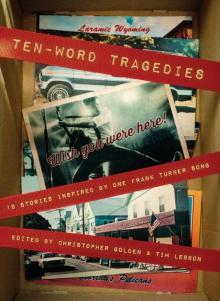 Ten-Word Tragedies
Ten-Word Tragedies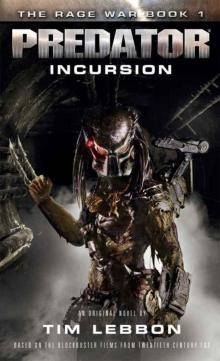 Predator: Incursion
Predator: Incursion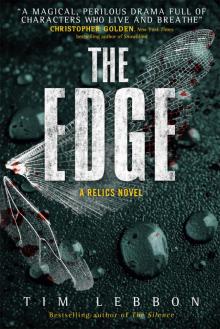 Relics--The Edge
Relics--The Edge Firefly
Firefly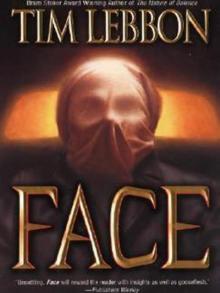 Face
Face Generations
Generations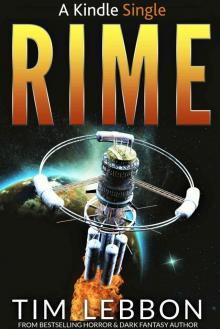 RIME (Kindle Single)
RIME (Kindle Single) Fallen
Fallen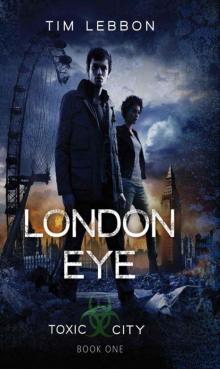 London Eye tc-1
London Eye tc-1 Kong: Skull Island
Kong: Skull Island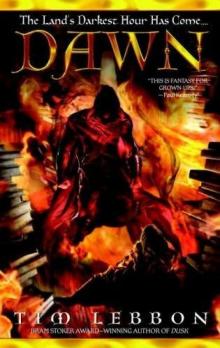 Dawn n-2
Dawn n-2 Into the Void: Star Wars (Dawn of the Jedi)
Into the Void: Star Wars (Dawn of the Jedi)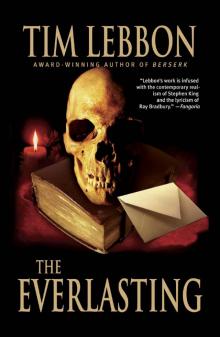 The Everlasting
The Everlasting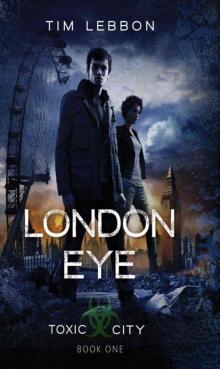 London Eye: 1 (Toxic City)
London Eye: 1 (Toxic City)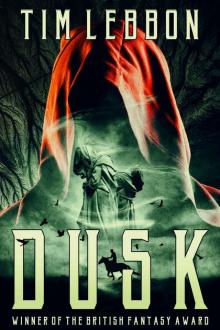 Dusk: a dark fantasy novel (A Noreela novel)
Dusk: a dark fantasy novel (A Noreela novel)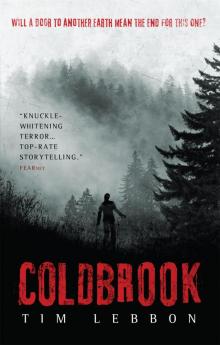 Coldbrook
Coldbrook Alien
Alien Dusk
Dusk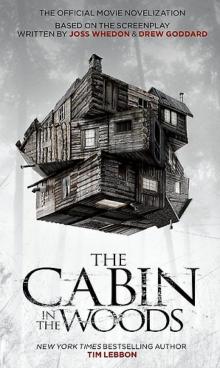 The Cabin in the Woods
The Cabin in the Woods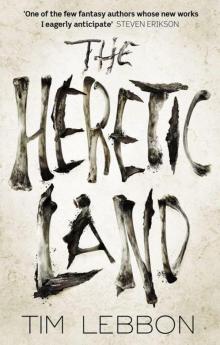 The Heretic Land
The Heretic Land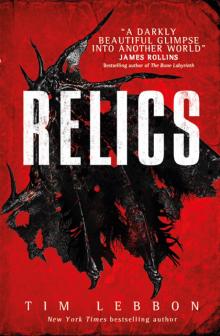 Relics
Relics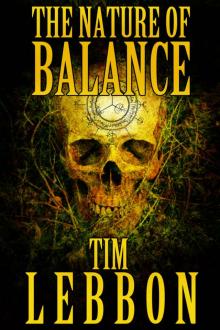 The Nature of Balance
The Nature of Balance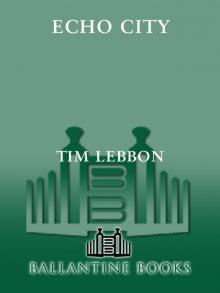 Echo City
Echo City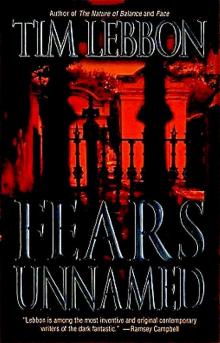 Tim Lebbon - Fears Unnamed
Tim Lebbon - Fears Unnamed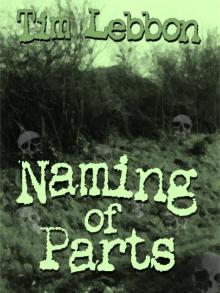 Naming of Parts
Naming of Parts Alien--Invasion
Alien--Invasion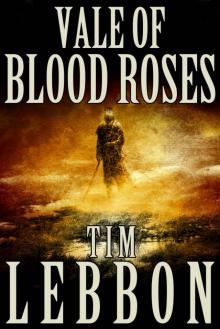 Vale of Blood Roses
Vale of Blood Roses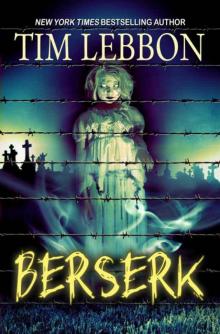 Berserk
Berserk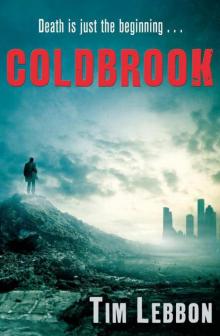 Coldbrook (Hammer)
Coldbrook (Hammer)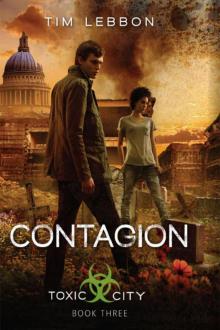 Contagion tc-3
Contagion tc-3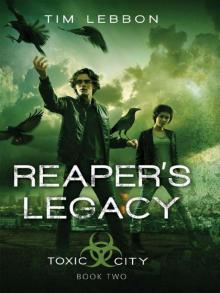 Reaper's Legacy: Book Two (Toxic City)
Reaper's Legacy: Book Two (Toxic City)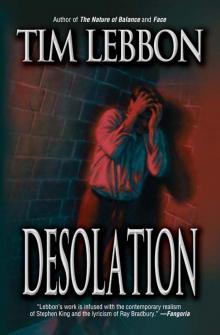 Desolation
Desolation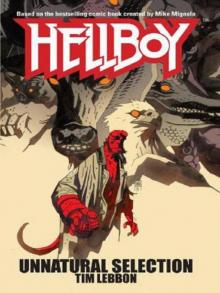 Unnatural Selection
Unnatural Selection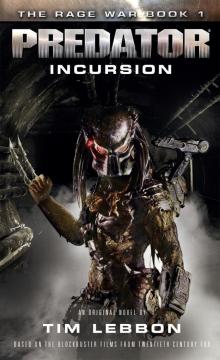 Predator - Incursion
Predator - Incursion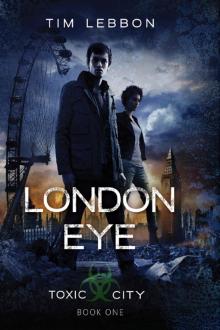 London Eye
London Eye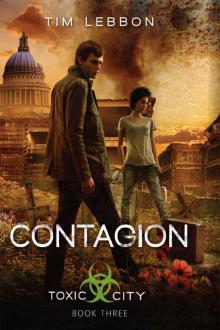 Contagion (Toxic City Book Three)
Contagion (Toxic City Book Three) The Silence
The Silence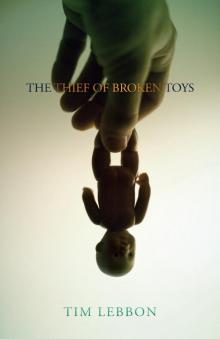 The Thief of Broken Toys
The Thief of Broken Toys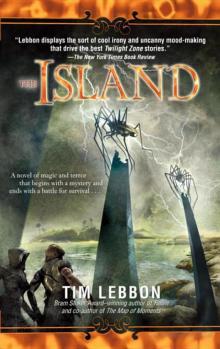 Tales of Noreela 04: The Island
Tales of Noreela 04: The Island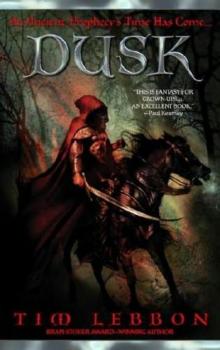 Dusk n-1
Dusk n-1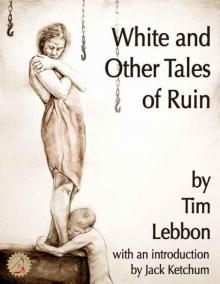 White and Other Tales of Ruin
White and Other Tales of Ruin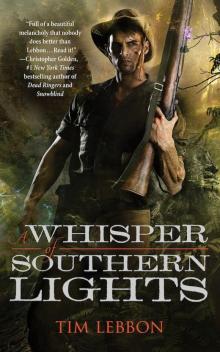 A Whisper of Southern Lights
A Whisper of Southern Lights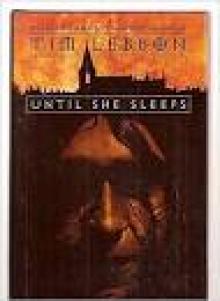 Until She Sleeps
Until She Sleeps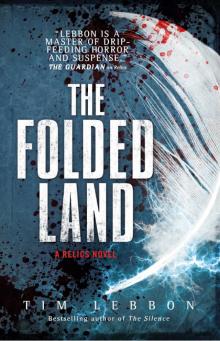 Relics--The Folded Land
Relics--The Folded Land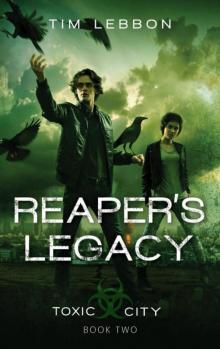 Reaper's Legacy tc-2
Reaper's Legacy tc-2 Alien: Out of the Shadows
Alien: Out of the Shadows Pieces of Hate
Pieces of Hate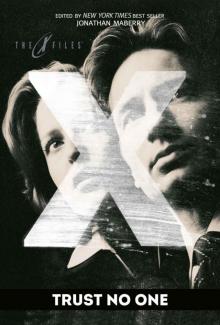 X-Files: Trust No One
X-Files: Trust No One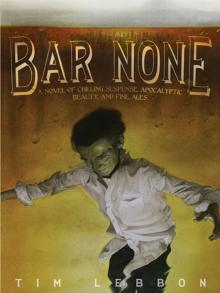 Bar None
Bar None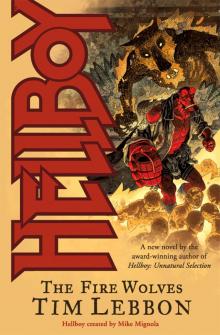 The Fire Wolves
The Fire Wolves